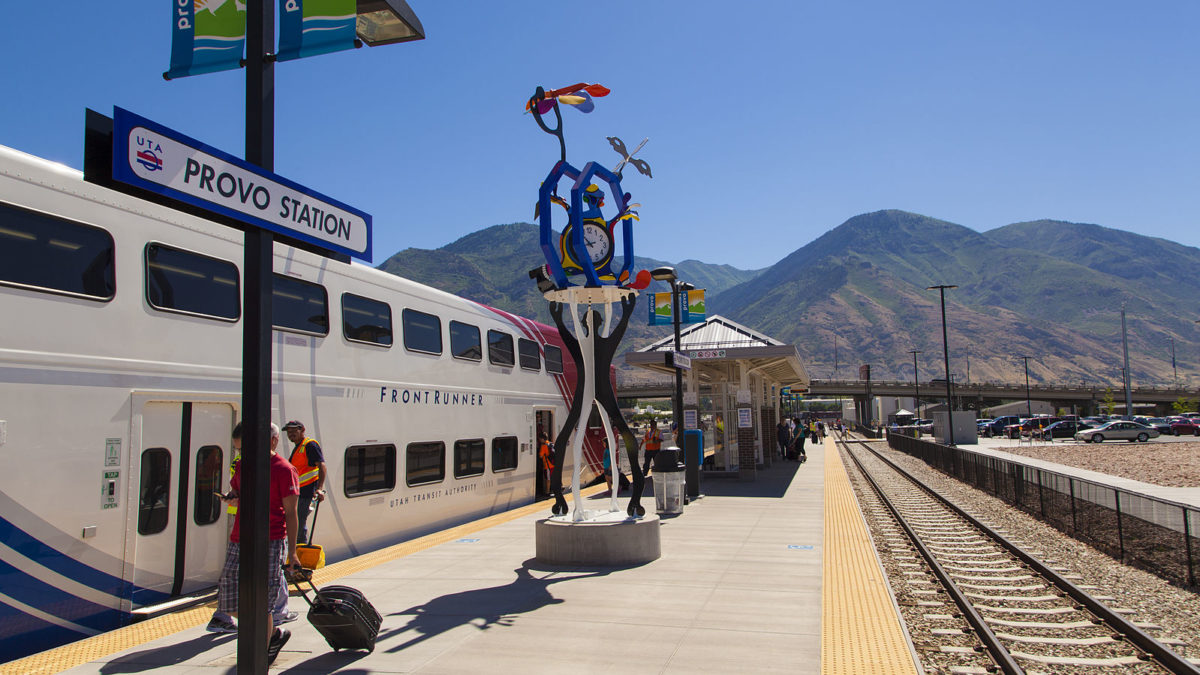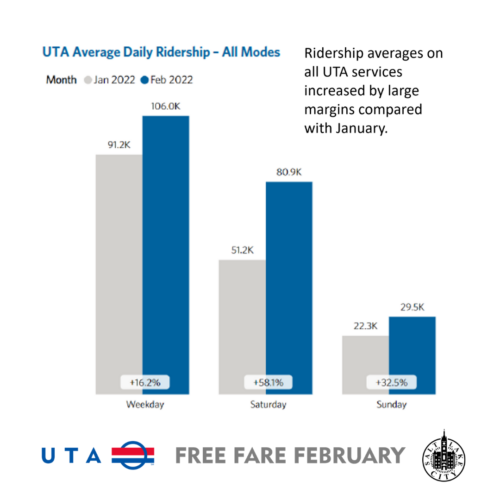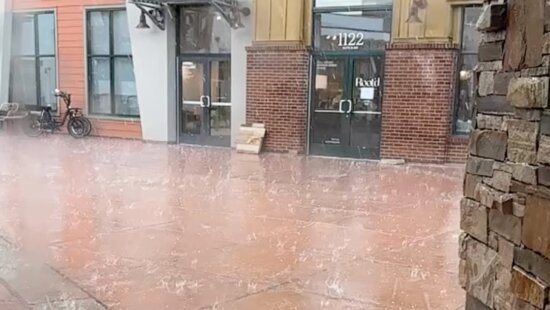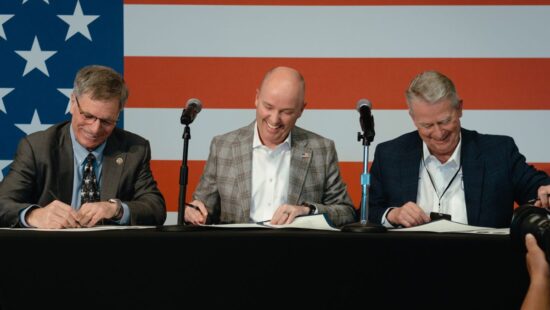Politics
Gov. Cox wants to explore the idea of free public transit across Utah

Ridership on the UTA's Frontrunner increased by over 200% during Free Fare February. When asked Thursday if he liked the idea of 'Free Fare Forever,' Utah Governor Spencer Cox said the idea was worth exploring. Photo: Utah Transit Authority
SALT LAKE CITY — After declaring a drought emergency at his monthly press conference on Thursday, Utah Gov. Spencer Cox turned the conversation to inflation and high gas prices.
The U.S. Department of Labor has reported that Utah and other Mountain West states (Arizona, Colorado, Idaho, Montana, Nevada, New Mexico, and Wyoming) have the nation’s highest annual inflation increase at 10.4%. The overall U.S. average is 8.5%.
The average gallon of gas in Utah according to AAA costs $4.50. The national average is $4.12. In Summit County, the average is $4.59.
The governor said that he’s been meeting with legislators to discuss ideas around tackling inflation. He added however that the economic policy “is mostly being driven at the national and international level.”
Several governments collaborated on a ‘Free Fare February’ program earlier this year, which made public transportation along the Wasatch Front completely free.
During the month, Saturday ridership jumped 58%, with weekday users increasing by 16%.

“We would like to see free fares in every transit district across the state,” Cox said. He said the state could fund it for a period of time, “three months, six months, something like that.”
When asked by Fox13 reporter Ben Winslow about the possibility of a ‘Free Fare Forever,’ Cox said it was worth exploring.
“I think we were all pleasantly surprised by the numbers that came out,” the governor said the February ridership data.
He said that a longer free program would give the state more data to help understand transit patterns, and emphasized that more people riding transit would reduce pain at the pump as well as help improve air quality
The two transit agencies in Summit County — Park City Transit and High Valley Transit — both offer free service.
The move would have to be approved by the Legislature, and there are currently no talks of a special session.
Getting back on the topic of inflation, Cox turned his focus to China.
He said “what is happening in China around supply chains” is a “deep concern.”
“We haven’t even started to see the supply chain inflation that is going to come because of the terrible decisions that the Chinese government has made.”
According to shipping analytics firm Windward, roughly 6% of the world’s roughly 9,000 active container ships are in traffic jams at Chinese ports.
Earlier this week, the Vice Premier of the Chinese Communist Party was quoted saying the country’s supply chains must be stabilized amid the rise of Covid-19. Shanghai, a city of 25 million, has been under lockdown for nearly four weeks.
“It’s artificially destroying demand for homes and other things by raising the cost of capital,” Cox said.



















